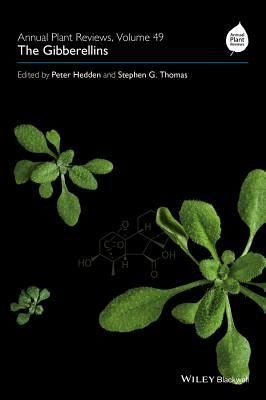
Annual Plant Reviews, the Gibberellins
Versandkostenfrei!
Versandfertig in über 4 Wochen
217,99 €
inkl. MwSt.
Weitere Ausgaben:

PAYBACK Punkte
109 °P sammeln!
First discovered as fungal metabolites, the gibberellins were recognised as plant hormones over 50 years ago. They regulate reproductive development in all vascular plants, while their role in flowering plants has broadened to include also the regulation of growth and other developmental processes. This timely book covers the substantial and impressive recent advances in our understanding of the gibberellins and their roles in plant development, including the biosynthesis, inactivation, transport, perception and signal transduction of these important hormones. An introductory chapter traces th...
First discovered as fungal metabolites, the gibberellins were recognised as plant hormones over 50 years ago. They regulate reproductive development in all vascular plants, while their role in flowering plants has broadened to include also the regulation of growth and other developmental processes. This timely book covers the substantial and impressive recent advances in our understanding of the gibberellins and their roles in plant development, including the biosynthesis, inactivation, transport, perception and signal transduction of these important hormones. An introductory chapter traces the history of gibberellin research, describing the many discoveries that form the basis for the recent progress. The exciting emerging evidence for the interaction of gibberellin signalling with that of the other hormones is critically evaluated. The occurrence of gibberellins in fungal, bacterial and lower plant species is also discussed, with emphasis on evolution. Manipulation of gibberellin metabolism and signal transduction through chemical or genetic intervention has been an important aspect of crop husbandry for many years. The reader is presented with important information on the advances in applying gibberellin research in agriculture and horticulture. Annual Plant Reviews, Volume 49: The Gibberellins is an important resource for plant geneticists and biochemists, as well as agricultural and horticultural research workers, advanced students of plant science and university lecturers in related disciplines. It is an essential addition to the shelves of university and research institute libraries and agricultural and horticultural institutions teaching and researching plant science.



